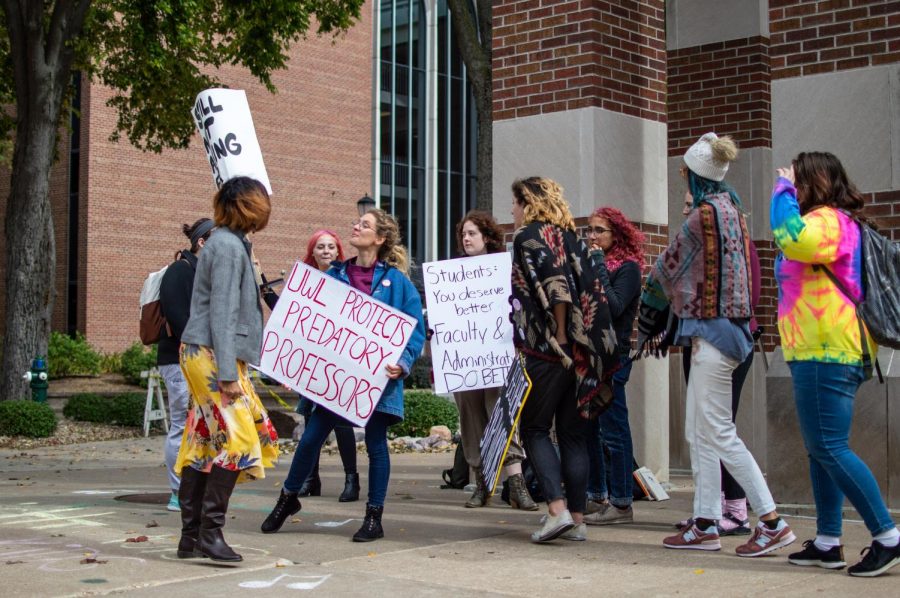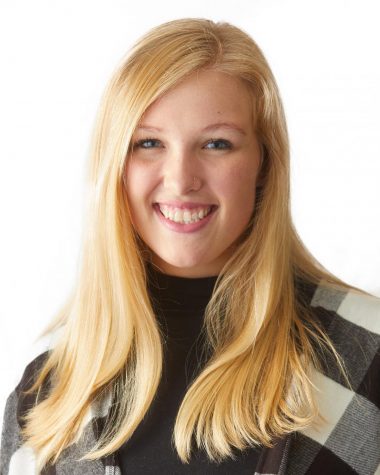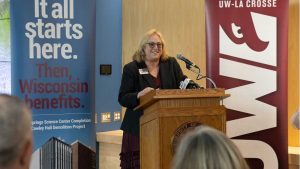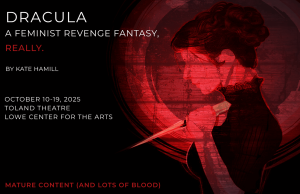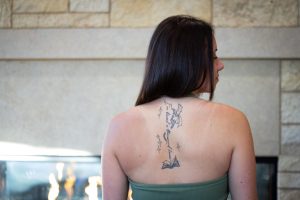Explained: The open investigations of sexual and verbal misconduct at UWL
UWL students protesting at the Clock Tower in result of recent sexual misconduct allegations on campus. Photo by Carly Rundle-Borchert
October 25, 2019
“Have you seen the people who have been protesting at the clock tower lately?”
“No.”
“No.”
“Sure.”
This, from three University of Wisconsin-La Crosse students, Lauren Lober, Jourdan Lepkowski, and Ahna McCarty (in descending order).
The Racquet Press asked the above question individually to students around UWL’s campus and was greeted with varying results.
“I’ve seen multiple people at the clock tower. I’ve seen them carrying signs saying UWL protects predatory professors,” said McCarty. When asked about her familiarity with campus events. Lober and Lepkowski both stated that they did not know much about what was taking place on campus regarding sexual misconduct.
“I read the emails from Joe Gow, and I also searched for the Facebook post. But I haven’t seen anyone protesting,” said Lober.
“I don’t feel very familiar with any sexual misconduct events,” said Lepkowski.
Details, for legal reasons, have not been released to the UWL public. However, through the use of social media, foundational information has been dispersed to the student body by other students. On Sept. 4, a UWL senior posted the details of an interaction of sexual misconduct between herself and professor Joel Elgin, who was then the chair of the art department. With this post, came a sequence of events.
According to Kyle Farris, education reporter for the La Crosse Tribune, the author of the September Facebook post was not the only victim to come forth at UWL. “The Tribune found through open records request that there have been more complaints in 2019 than in the previous three years combined. Four complaints were filed during the spring semester alone,” said Farris in his article about the resulting protests.
Farris, in an email transaction with a Racquet Press staff member, transferred the open records report requested from the University to student reporters with The Racquet Press.
Per a note at the bottom, the information requested was, “Every sexual misconduct complaint at UW-La Crosse since the fall of 2014, as well as the results of these investigations.” It does not include cases that solely involve students, and instead focuses on incidents in which faculty and staff were involved.
The report findings are organized first by the respondent’s classification, as either faculty or staff, and then by further details of the specific case — such as allegation type, summary, and finding— and concludes with the type of disciplinary action taken. Depending on the allegation verdict, the disciplinary actions range from a letter of counseling to administrative leave or resignation.
Between 2014 and 2018, there were two cases of sexual misconduct directly involving faculty. In these same four years, those not classified as instructional staff totaled four sexual misconduct cases.
In 2019 alone, the total number of sexual misconduct reported on the UWL campus doubled that of what it had been in previous years.
The university is currently undergoing five open sexual misconduct investigations, of which, four directly include faculty. Charges include both physical and verbal conduct. As investigations are ongoing, nothing has as of yet been confirmed.
Despite the rising statistics in 2019, sexual misconduct is not a new phenomenon on the UWL campus. Debates about the issue and its sequential due process procedures have been going on since before the turn of the century.
In a 1997 edition of the Racquet Press, then student Julie C. Taylor submitted a letter to the editor, regarding what she considered to be propaganda that had been circulating the University. After receiving a flyer about authorities involvement in sexual-harassment on campus, Taylor expressed her opinions overprint:
“The contents were focused on sexual harassment, the authorities’ involvement. In sexual harassment cases, the community police’s involvement with cases filled and there were other various comments about the administration – mainly about them not being present at the anti-hate rally that was held a few weeks ago,” wrote Taylor.
In the years between 1997 and 2019, sources of student news have changed. More prevalent than flyers are email and social media— much of which has been censored to respect the legal rights of defendants— and in more frequent demand than university official’s involvement is the demand for an open forum.
According to her statement in Farris’s Tribune article, this is what senior Kendra Whelan would like to see. “You can’t have this horrible thing happen and then not expect students to have questions about it, not hold yourself publicly accountable,” said Whelan.
University violence prevention specialist Ingrid Peterson states that trends in statistics are not always related to trends in crime rates. “In general,” she said in a statement to Farris, “any increase in numbers translates to more people knowing what resources are available and more people feeling comfortable coming forward.”
Regardless of rising statistics or media coverage, the decisions of the five open investigations will set a precedent for accountability standards at UWL. As a result of student protests and community awareness via mediums such as the La Crosse Tribune, changing climates at UWL regarding due process will mark a change in student expectations.
To find resources related to sexual harassment: https://www.uwlax.edu/violence-prevention/resources/

